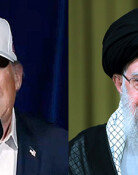Mature Democratic Behavior
The U.S. health care reform bill, which President Barack Obama has pushed for even at the risk of his political career, was passed by the House of Representatives Sunday to become law after receiving Senate approval in December last year. The idea of a universal health insurance system was first initiated by Theodore Roosevelt, who made it one of his presidential election pledges in 1912. Since then, many U.S. presidents have tried but failed to implement universal health care due to the massive financial burden, conflict of interest between income classes, and ideological controversy. In the wake of the success in Medicare reform, the U.S. has shed its negative image as the worlds only advanced economy with no national health insurance, and will provide coverage to the estimated 32 million uninsured Americans.
After making health care reform his top election pledge in the 2008 presidential election, Obama has devoted all of his energy to legislating Medicare reform since his inauguration in January last year. In a desperate bid to get the bill approved through bipartisan consensus, he personally attended a training session of Republican congressmen, an event that is considered the enemys camp, invited Republican lawmakers to the White House, and held heated debates. He even postponed his overseas trip and invited opposition lawmakers to board Air Force One to persuade them. Despite blasting Fox News Channel as a propaganda machine of conservatives, he agreed to give Fox an interview to push forward health care reform. He failed to win opposition support, but nevertheless deserves high marks for his all-out efforts to persuade the opposition and the public.
Obama has seen the reform bill get passed, a measure that he says is needed to benefit the majority of Americans. He did this at the risk of political losses in the mid-term and 2012 presidential elections. The president stood to lose support from progressives as well as conservatives, but made it clear that he was ready to give up his own immediate political interests to tackle one of the biggest problems in the U.S. He announced in January that he will conduct Medicaid reform even if he serves just one term.
The Republicans are the minority in both the Senate and House, but did not resort to physical resistance at the vote or street rallies in collaboration with external forces. In a gesture of respect for democracy based on the congressional representation system, Republicans revised the bill several times and accepted the result of the vote, demonstrating the image of a mature party that honors procedural democracy. Why Korean politicians have no intent to show the same image remains a mystery.
Since Obamas inauguration, the White House and Congress have considered health care reform their top priority, putting international issues except the war in Afghanistan on the backburner of U.S. politics. With Medicaid reform reaching a conclusion, Washington is expected to take a more proactive stance in the resolution of major pending issues, including the Korea-U.S. free trade agreement and the nuclear standoff with North Korea.







